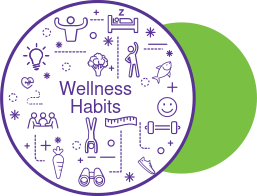Warnings - Trulicity may cause tumors in the thyroid, including thyroid cancer. Watch for possible symptoms, such as a lump or swelling in the neck, trouble swallowing, hoarseness, or shortness of breath. If you have any of these symptoms, tell your healthcare provider.
Do not use Trulicity if you or any of your family have ever had a type of thyroid cancer called medullary thyroid carcinoma (MTC).
Do not use Trulicity if you have Multiple Endocrine Neoplasia syndrome type 2 (MEN 2).
Do not use Trulicity if you are allergic to dulaglutide or other ingredients in Trulicity.
Ask your healthcare provider how to recognize the serious side effects below and what to do if you think you have one:
Inflamed pancreas (pancreatitis). Stop using Trulicity and call your healthcare provider right away if you have severe pain in your stomach area (abdomen), with or without vomiting, that will not go away. You may feel the pain from your abdomen to your back.
Low blood sugar (hypoglycemia). Your risk for getting low blood sugar may be higher if you use TRULICITY with another medicine that can cause low blood sugar, such as a sulfonylurea or insulin.
Signs and symptoms of low blood sugar may include dizziness or light-headedness, confusion or drowsiness, headache, blurred vision, slurred speech, fast heartbeat, sweating, hunger, shakiness, feeling jittery, weakness, anxiety, irritability, or mood changes.
Serious allergic reactions. Stop using Trulicity and get medical help right away if you have any symptoms of a serious allergic reaction which may include swelling of your face, lips, tongue or throat, problems breathing or swallowing, severe rash or itching, fainting, or feeling dizzy, or very rapid heartbeat.
Dehydration leading to kidney problems. Diarrhea, nausea, and vomiting may cause a loss of fluids (dehydration) which may cause kidney problems. It is important for you to drink fluids to help reduce your chance of dehydration. Tell your healthcare provider right away if you have nausea, vomiting, or diarrhea that does not go away.
Severe stomach problems. Stomach problems, sometimes severe, have been reported in people who use Trulicity. Tell your healthcare provider if you have stomach problems that are severe or will not go away.
Changes in vision. Tell your healthcare provider if you have changes in your eyesight (vision) during treatment with Trulicity.
Gallbladder problems. Gallbladder problems have happened in some people who take Trulicity. Tell your healthcare provider right away if you get symptoms of gallbladder problems, which may include pain in your upper stomach (abdomen), fever, yellowing of skin or eyes (jaundice), clay-colored stools.
Food or liquid getting into the lungs during surgery or other procedures that use anesthesia or deep sleepiness (deep sedation). Trulicity may increase the chance of food getting into your lungs during surgery or other procedures. Tell all your healthcare providers that you are taking Trulicity before you are scheduled to have surgery or other procedures.
Common side effects
The most common side effects of Trulicity include nausea, diarrhea, vomiting, abdominal pain and decreased appetite, indigestion, and fatigue.
These are not all the possible side effects of Trulicity.
Tell your healthcare provider if you have any side effects. You can report side effects at 1-800-FDA-1088 or www.fda.gov/medwatch.
Before using
Your healthcare provider should show you how to use Trulicity before you use it for the first time.
Before you use Trulicity, talk to your healthcare provider about low blood sugar and how to manage it.
Review these questions with your healthcare provider:
□ Do you have other medical conditions, including problems with your pancreas, kidneys, liver, or stomach, or have a history of diabetic retinopathy (vision problems related to diabetes)?
□ Do you take other diabetes medicines, such as insulin or sulfonylureas?
□ Are you scheduled to have surgery or other procedures that use anesthesia or deep sleepiness (deep sedation)?
□ Are you pregnant or plan to become pregnant or breastfeeding or plan to breastfeed?
□ Do you take any other prescription medicines or over-the-counter drugs, vitamins, or herbal supplements?
How to take
Read the Instructions for Use that come with Trulicity.
Use Trulicity exactly as your healthcare provider says.
Inject Trulicity under the skin (subcutaneously) of your stomach (abdomen), thigh, or upper arm. Do not inject Trulicity into a muscle (intramuscularly) or vein (intravenously).
Do not share your Trulicity pen, syringe, or needles with another person.
Do not give Trulicity to other people.
If you take too much Trulicity, call your healthcare provider or Poison Helpline at 1-800-222-1222 or go to the nearest hospital emergency room right away.
Learn more
Trulicity is a prescription medicine available as a pre-filled single-dose pen in 0.75 mg,1.5 mg, 3 mg, or 4.5 mg per 0.5 mL injection. For more information, call 1-800-LillyRx (800-545-5979) or go to www.trulicity.lilly.com.
This summary provides basic information about Trulicity but does not include all information known about this medicine. Read the information that comes with your prescription each time your prescription is filled. This information does not take the place of talking with your healthcare provider. Be sure to talk to your healthcare provider about Trulicity and how to take it. Your healthcare provider is the best person to help you decide if Trulicity is right for you.
DG CON HL BS 28MAY2025
Trulicity® and its delivery device base are registered trademarks owned or licensed by Eli Lilly and Company, its subsidiaries, or affiliates.
 Trulicity support
Trulicity support Lifestyle Tips
Lifestyle Tips